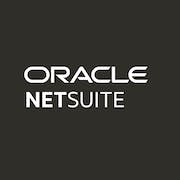Looking to buy financial risk management software? Our comprehensive buyers guide will help you choose the best solution for your needs. Compare features, benefits, and more to make an informed decision. Click here to learn more now.
For businesses operating in today's fast-paced and dynamic market, financial risk management is a critical aspect that can make or break their success. Managing financial risk requires astute decision-making and constant vigilance in order to avoid financial pitfalls and stay ahead of the curve.
With so many options available in the market, choosing the best risk management software can be a daunting task. In this buyer's guide, we aim to provide you with a comprehensive overview of the key features, benefits, and considerations in selecting the perfect solution for your business. Whether you are a small business owner or a finance professional in a large organization, having the right tool in place can help you mitigate risks, predict outcomes, and drive growth.
What is financial risk management software?
Financial risk management software is an essential tool for companies that want to protect themselves from financial risks. It is designed to analyze current and potential threats that a company might face, helping organizations to make informed decisions about their financial health and stability.
In a nutshell:
- The risk management software market size was valued at $10.7 billion in 2020, and it is estimated to grow at a CAGR of 7.7% by 2026.
- The software can help companies identify potential risks and take steps to mitigate them. This could include anything from unstable market conditions to potential legal issues.
- One of the key functions of this solution is risk analysis. Companies can run simulations and model various scenarios to determine the likelihood and potential impact of different risks.
- Companies can monitor their risk levels in real-time, which means they can quickly respond to any changes in the market or their business operations.
- Companies that have to comply with regulatory requirements can use financial risk tools to ensure that they are meeting all of the necessary guidelines.
- The software is often used by investment firms to monitor and manage their investment portfolios. It can help to identify potential risks and adjust their investments accordingly.
This solution is particularly useful for companies in industries such as banking, finance, and insurance, as they are often subject to strict regulatory requirements and need to be able to monitor and mitigate risks in real-time. However, any company that wants to protect itself from potential financial threats can benefit from using this tool.
What are the benefits of financial risk management software?
Managing financial risks has become an essential aspect of any successful enterprise as businesses become more complex and globalized. This is where financial risk management software comes into play. It provides a comprehensive solution to help businesses identify, analyze, and manage financial risks effectively.
Here are some of the key benefits of using it for your business:
Improved risk management
It allows to identify potential financial risks, such as credit risk, market risk, and operational risk. By identifying them early on, organizations can take preventative measures to reduce or eliminate potential threats.
Increased efficiency
It enables businesses to automate their risk management processes, which saves time and improves efficiency. The software can analyze data and generate reports, reducing the need for manual work and data input.
Better decision-making
By providing comprehensive risk analysis reports, financial risk management solutions make it easier for businesses to make informed decisions. The reports help identify potential issues and offers insights into the best course of action.
Scalability
Organizations can easily scale their risk management efforts with a financial risk management tool – it can be customized to meet the needs of any business, regardless of size or complexity.
Cost savings
The software can help businesses save money by identifying potential risks before they become serious issues. This can prevent costly mistakes and minimize financial losses due to risk.
Financial risk management solutions are perfect for businesses looking to manage financial risks effectively. By improving risk management, increasing efficiency, aiding decision-making, offering scalability, and reducing costs, businesses can stay ahead of the curve and achieve long-term success.
10 key features of financial risk management solutions
Financial risk management programs assist businesses in effectively managing risks and anticipating potential issues to ensure they are well-prepared for any situation. Here are ten common features of the solution that prove to be extremely beneficial for businesses:
- Risk analysis and assessment: it provides businesses with a comprehensive view of their financial risks by analyzing and assessing the potential impact and likelihood of each risk scenario.
- Scenario simulation: it allows users to simulate different scenarios to assess the impact of potential risks and evaluate the effectiveness of proposed risk mitigation strategies.
- Risk reporting and compliance: it assists businesses in generating comprehensive risk reports and complying with regulatory requirements.
- Risk mapping: users can create a visual map of all identified risks, making it easier to measure, assess and mitigate potential risks.
- Integration with other business systems: it can integrate with other business systems such as ERP, CRM, and accounting systems to provide a more comprehensive view of financial risks across the organization.
- Alert and notification system: it sends timely alerts and notifications to relevant personnel when risky activities occur or risk thresholds are exceeded.
- Risk mitigation and control: it aids businesses in developing and implementing risk mitigation strategies and control policies to minimize the impact of identified risks.
- Portfolio analysis: it allows businesses to assess their portfolio to identify and prioritize risks, which helps in making informed decisions about financial investments.
- Audit trail: it keeps a detailed record of all risk management activities for future audits and regulatory compliance.
- Collaborative capabilities: it offers collaboration features, which enables relevant business units to work together to identify, address and mitigate risks more effectively.
What to take into consideration when investing into software?
Adopting a financial risk management software is a smart decision for any business. But selecting the right software requires careful consideration of a number of factors.
The most important is the level of customization that the software can offer. This is important because businesses of different sizes and industries have different risk profiles and therefore require tailored risk management solutions.
Another key factor to consider is its level of automation. The more automated the software, the more efficient and effective it will be in identifying and mitigating risks.
Integration with other business systems, such as accounting or enterprise risk management software, is also something to think about. This will facilitate efficient data sharing and collaboration across departments.
The ability to generate customized reports and analytics is crucial to identify trends, make informed decisions, and track progress over time.
Finally, user-friendliness and ease of adoption are essential. The software should be intuitive and require minimal training to ensure widespread adoption.
Software trends to look out for in 2024 and beyond
Financial risk management software is becoming increasingly important in managing exposure to various risks in today's world. With the adoption of advanced technology and the presence of large players in North America, the market is set to witness new investments and technological developments. It is projected that the US market will maintain its dominance until 2029, with an estimated value of $1,683.9 million.
The prominence of cloud-based solutions is increasing
One of the biggest trends in financial risk management tools is the increasing prominence of cloud-based solutions. This is due to the growing need for remote access and real-time data analysis. In addition, web-based software is becoming more user-friendly and easier to implement, making it an attractive option for small/mid/large businesses and banks alike.
Artificial intelligence and machine learning integration
The integration of AI and ML into financial risk management software has become important for improving risk assessment, predictive analytics, and real-time decision-making.
The demand for customized software is growing
There is a growing demand for customized solutions that can be tailored to specific business needs. This trend is spurred on by the need for more personalized risk management tools, as well as the increasing complexity of financial data analysis.
Easy access to accurate and relevant data
Finally, in order to make informed decisions, it is essential to have access to accurate and relevant data. This trend has led to the development of more advanced reporting and analytics tools. Having real-time insights into financial data can help businesses to make better decisions and manage risks more effectively.
Conclusion
Financial risk management software is widely utilized by businesses and banks to efficiently handle exposure to various risks. It aids in the identification, analysis, and monitoring of risk levels, facilitates compliance with regulatory requirements, and assists in the management of investment portfolios.
The software provides a range of essential features designed to manage financial risks effectively, including risk analysis, scenario simulation, alerts and notifications, portfolio analysis, risk mitigation and control and much more.
As we move towards 2024 and beyond, we can expect to see significant growth in this market, with the adoption of advanced technology, the increasing prominence of cloud-based solutions, the integration of AI and ML, the demand for customized software, and more advanced reporting and analytics tools.








